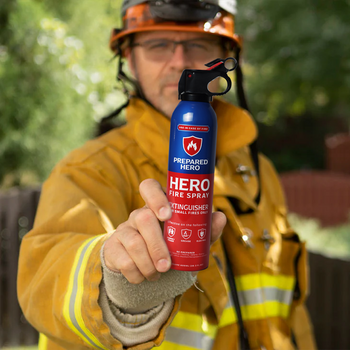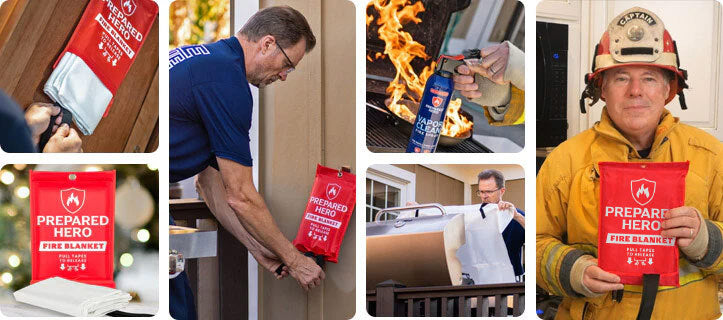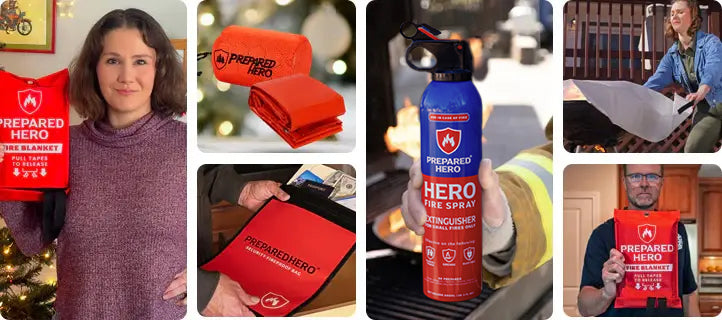Where you put your smoke detectors matters just as much as installing them. Proper placement makes sure they can detect...
Smoke detectors are your first line of defense against fires. If you’re wondering whether your smoke detector is still doing its job or if it’s time for a new one, you’re in the right place. This guide breaks down how they work, when they expire, and how to keep them in good shape.
How Smoke Detectors Work

Smoke detectors help keep you safe by warning you when there’s smoke in the air. There are three main types: ionization, photoelectric, and combination.
Ionization smoke detectors work best at spotting fast, flaming fires. These include those caused by grease, paper, or flammable liquids. They have a bit of radioactive material called americium-241 that charges air particles. When smoke enters, it disrupts the charge and triggers the alarm. Ionization detectors are usually cheaper. However, bathroom steam or kitchen smoke can cause false alarms.
On the other hand, photoelectric smoke detectors work best against slow, smoldering fires. These include fires caused by electrical issues or furniture. As the term suggests, a photoelectric alarm has a light beam inside. When smoke enters, it scatters the light and triggers the alarm. Photoelectric detectors are less likely to cause false alarms in kitchens and bathrooms, but they cost more.
Then there are combination detectors. They use photoelectric and ionization tech to catch both types of fires. Some even include carbon monoxide detection. These are the most reliable, especially for larger homes.
Smoke detectors are just one part of fire safety. Other tools like fire blankets, flame shields, fire sprays, and fire extinguishers help you put out a fire quickly once you're alerted. For example, if your smoke detector goes off while cooking, you can use a fire blanket or spray to stop it before it spreads.
Do Smoke Detectors Expire?
Smoke detectors expire, and it’s something you shouldn’t ignore. In general, smoke detectors last for 10 years. After that, the sensors wear out, making them less reliable when you need them most.
Dust and debris also build up inside the detector over time. This can mess with its ability to sense smoke. So even if your smoke detector beeps during a test, it might not respond fast enough during a fire. If it fails a test or keeps beeping with new batteries, it’s best to replace it.
Your smoke alarm’s age matters a lot. To check if yours is still good, look for the manufacturing date on the back of your detector. If you see that it’s near or over 10 years old, replace it as soon as possible.
Hardwired smoke detectors usually last up to 10 years, while battery-operated alarms last between five and 10 years. Combination detectors (smoke and carbon monoxide) typically have shorter lives: about 5 to 7 years. It’s because carbon monoxide sensors wear out faster.
Where to Place Smoke Detectors

According to the National Fire Protection Association (NFPA), you should put at least one smoke detector in every bedroom, outside each sleeping area, and one on every level of your home, including the basement.
For instance, you need at least six smoke alarms if you live in a two-story house with three bedrooms. In particular, you need one in each bedroom (3), one in the hallway outside the bedrooms (1), one on the first floor (1), and one on the second floor (1).
You need smoke alarms in bedrooms because fires can start while you’re asleep. Having a smoke detector there gives you a better chance of waking up and getting out in time. The same principle applies to hallways.
If your home has hardwired alarms, that’s great. But you can also add battery-operated ones for extra coverage. Interconnected alarms are the most reliable because if one goes off, they all do. This warns everyone, no matter where they are in the house.
How to Maintain Smoke Detectors
Maintaining your smoke detectors is important, and it’s easier than you might think. A few simple habits can make a big difference.
First, test your smoke alarms once a month. Press the test button until you hear a loud beep. If the sound is weak or you hear nothing, you may need to change the batteries or replace the unit.
You should also clean your detector every few months. Dust, bugs, or gunk can mess with its sensors. Turn off the power (if it’s hardwired), take it down, and gently vacuum the outside using a soft brush attachment. You can also wipe it with a dry microfiber cloth. Don’t use water or cleaning spray because moisture can mess with the sensors.
Change the batteries at least once a year, or when the alarm goes off randomly. A lot of people do this when daylight saving time kicks in because it’s an easy way to remember.
Lastly, check the expiration date. Smoke detectors usually last about 10 years. If yours is older than that, get a new one as soon as possible. They’re affordable, easy to install, and give you peace of mind.
How Do I Know if My Smoke Detector Is Outdated?

Your smoke detector is outdated if it's over 10 years old, turns yellow, constantly beeps without a fire, or has been recalled.
First, take the smoke alarm off the wall or ceiling and look at the back. You’ll see a manufacturing date printed there. If that date is over 10 years ago, it’s time to replace it. Even if it still works, the sensors are wearing out and may not pick up smoke fast enough.
Another sign is if your smoke detector has turned yellow. That’s not just from dust or sunlight. It means the fire-retardant chemical inside is breaking down, so it’s time for a new one. Constant beeping without a fire is also a red flag. New batteries might fix it, but if the beeping keeps going, you need to replace your smoke detector.
You should also check if your model has been recalled. A quick online search with the brand and model number can save you a lot of trouble.
Do Hardwired Smoke Detectors Expire?
Yes, hardwired smoke detectors expire. They usually last up to 10 years. Over time, the sensors wear out and don’t pick up smoke as quickly as they should. And while these detectors are wired into your home’s electrical system, they don’t last forever.
Know your hardwired smoke detector’s expiration date by looking at its back or side. The manufacturing date is usually found there. If the current date is past that, it’s time for a new one.
Even if the backup battery still works, the whole unit needs to be replaced after 10 years. Backup batteries usually need to be changed every year, but that doesn’t reset the detector’s lifespan. So, if it’s been a decade, play it safe and get a new detector.
You should also test your hardwired detectors regularly. If the alarm doesn’t sound when tested, call an electrician right away. It’s a small move that could save your life.
Do You Really Need to Replace Smoke Detectors Every 10 Years?

Yes, you really need to replace smoke detectors every 10 years. Even if they still beep and light up, the sensors inside wear down over time. Dust, dirt, and old age make them less reliable or not at all. It’s a big risk when a small flame can turn into a major fire in 30 seconds.
Smoke detectors have manufacturing dates on the back, so check them. If they’re 10 years old or more, it’s time for a new one. Even 10-year sealed batteries need to be replaced after the said period. So yes, replacing smoke detectors every 10 years isn’t just a suggestion. It’s a smart move that could save lives and property.
How Long Is an Unopened Smoke Detector Good For?
An unopened smoke detector is good for about 10 years. It still follows the usual expiration date, even if it’s in the box. Plus, the 10-year lifespan starts from the date it was made, not when you open it. This means if it’s been sitting in a closet for one year, you’ve already lost time.
Most manufacturers also recommend using an unopened smoke detector within 12 months of buying it. After that, the warranty and performance might not be as reliable. You’ll usually find the manufacture or expiration date printed on the back or side of the unit.
Even if it’s never been used, the internal sensor still ages and loses sensitivity over time. So don’t assume that unopened detectors are new. Stay safe by making sure you’re not installing an old detector past its prime.
Why Does My Old Smoke Detector Go Off Randomly?

Your old smoke detector goes off randomly because of low batteries, dust buildup, humidity, temperature changes, insects, or old age.
One of the most common reasons is a low battery. Dust, pet hair, or debris inside the unit can also mess with the sensor and trigger false alarms. Steam or humidity from showers or cooking can set it off, too.
Sudden changes in temperature, like opening a window or cranking up the heat, can confuse an old smoke detector as well. Plus, insects crawling inside the old smoke detector can cause it to beep for no reason. And if you’ve checked everything else and it’s still acting up, it might just be old. Either way, don’t ignore it. Replace or have it checked by a professional to stay safe.
Conclusion
Smoke detectors don’t last forever, and that’s something every homeowner should know. Replace them after 10 years, even if they seem fine. Remember, you can’t trust old sensors during an emergency. It’s a small effort for a big payoff: your safety. Stay on top of it, and your home stays protected.
Do you want reliable, easy-to-use, and affordable tools to put out small fires before they spread? Check out Prepared Hero’s fire prevention tools here, and get up to 51% off on certain items. Stay prepared, hero!


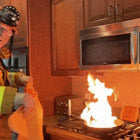 Fire
Fire Safety
Safety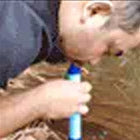 Survival
Survival Protection
Protection New
New Scouting America
Scouting America
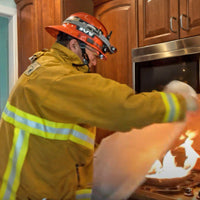 Fire
Fire Safety
Safety Survival
Survival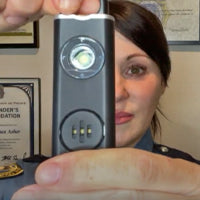 Protection
Protection New
New



